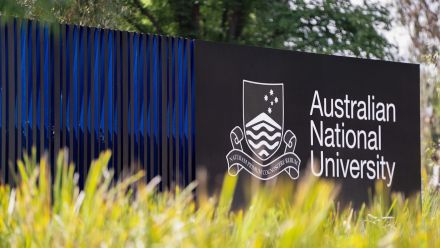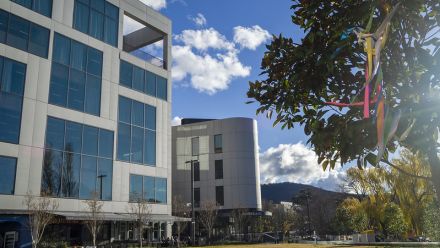FAQs: Nixon review report
General FAQ's
Why is the full report being shared with the entire 91 ”∆µcommunity rather than just the College?
The University committed to publishing the report when it commenced the review and is dedicated to communicating with our community as transparently as possible as we address these issues.
We reaffirm our commitment to providing a safe, respectful, welcoming and inclusive environment where all members of our community are supported to achieve their full potential. 91 ”∆µhas a responsibility to care for all members of its community, and the health, safety and wellbeing of its staff and students will always be its priority.
Who do I contact if the media approaches me to talk about the Nixon Review?
If you need assistance, the 91 ”∆µMedia team is available to support you. Please don‚Äôt hesitate to contact them by calling +61 2 6125 7979 or by emailing media@anu.edu.au.
Will similar reviews be done in other Colleges?
While most of the interviews and submissions made to Professor Nixon‚Äôs Review were related to the former 91 ”∆µCollege of Health and Medicine and her findings specifically address that College, Professor Nixon‚Äôs recommendations identify areas for improvement that could be implemented university wide. These include selection and appointment processes, as well as complaint handling, which impact staff and students across the whole University community.
This is where the Working Groups will be particularly important – feedback from staff and students in those groups will help us take the necessary steps to improving our culture and making change.
How will issues specifically relating to the John Curtin School of Medical Research (JCSMR), the School of Medicine and Psychology (SMP) and the National Centre for Epidemiology and Public Health (NCEPH) be addressed?
Issues specific to the former 91 ”∆µCollege of Health and Medicine (CHM) and its Schools will be reported to the Steering Group through the Deans of the College of Science and Medicine (CoSM) and the College of Law, Governance and Policy (CLGP).
What action will be taken against people where specific issues of misconduct were raised with Professor Nixon?
91 ”∆µtakes each allegation of misconduct raised in this review extremely seriously. We are committed to fostering a safe and respectful environment and will take appropriate action to address harmful behaviour.
91 ”∆µcannot go into detail about specific instances of misconduct raised in the Nixon Review, as allegations of misconduct require investigation. Professor Nixon has produced a separate, confidential report which outlines specific allegations against named individuals. The University will carefully consider this report, and where appropriate, individuals will be formally investigated in line with the established frameworks.
Is the Nixon Review aligned with the 91 ”∆µMental Health and Wellbeing Strategy?
Yes, the review is closely aligned with the 91 ”∆µMental Health and Wellbeing Strategy. Both the Mental Health and Wellbeing Strategy and the Nixon Review envision an ideal future state where the University is better equipped to address the needs of its students and staff.
They share substantial overlaps in the recommended methods, such as:
- Focus on internal accountability (not external-facing compliance reporting).
- Promoting transparency.
- Engaging deeply with staff.
- Simplifying and improving systems.
- Increasing training to develop capability.
Why didn’t everyone who asked for an interview with Professor Nixon get one?
Everyone who requested to participate was given the opportunity to do so.
Where interviews were unable to be scheduled, participants were given the opportunity to provide a written response.
All up, Professor Nixon interviewed 83 former and current 91 ”∆µstaff and students and received 67 written submissions.
We are grateful to the many current and former staff and students who made an active contribution to the Review. Their voices are driving change, and we will keep listening, acting and improving as we take steps to make our campus a safer and more respectful place.
How do I make an expression of interest to join a Working Group?
Academic staff (all levels), professional staff (all levels) and students (undergraduate and postgraduate) will be invited to make an expression of interest (EOI) to participate in a Working Group.
It is anticipated that the time commitment for members will be 60-90 minutes per week for the 12-week period the Working Groups will operate.
The EOI application process will be advertised in On Campus in early June.
Why are the external review dates not until 2026?
This is in accordance with Nixon Review Recommendation 2 which states: Ensure accountability by having an external reviewer monitor progress on these recommendations at 9 and 18 months and provide a report to Council and the University community on actions taken, structural issues addressed, and accountability measures.
Professor Nixon has accepted the Provost’s invitation to perform an external review of our progress in January 2026 and October 2026.
What do I say to people who are considering coming here to study medicine?
The University is committed to providing a high-quality education and a supportive environment for its students. While this gender and culture review has highlighted some systemic issues and psychosocial hazards in the workplace, we are actively working to address these concerns. Our goal is to create a safer and more inclusive environment for everyone.
Prospective students should know that we value their well-being and are dedicated to continuous improvement. We encourage open communication and feedback, and we are implementing measures to ensure a positive and healthy learning experience.
I have a question that isn’t answered here. Where can I ask it?
Please contact the Review Secretariat through NixonReview@anu.edu.au


